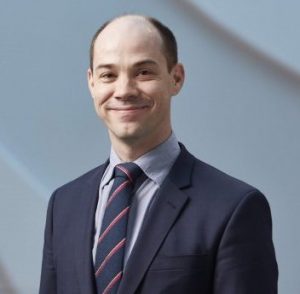
Dr Michael Dickinson
CAR-T therapy tisagenlecleucel (formerly CTL019) has been approved by the TGA for use in paediatric and young adult patients up to 25 years of age with B-cell precursor acute lymphoblastic leukaemia (ALL).
The therapy – marketed as Kymriah by Novartis – is approved for young patients with ALL that is refractory, in relapse post-transplant or in second or later relapse. It has also received TGA approval for the treatment of adult patients with relapsed or refractory diffuse large B cell lymphoma (DLBCL) after two or more lines of systemic therapy.
However the therapy – which is estimated to cost up to $598,000 – has yet to receive public funding via the PBS or Medicare and therefore must be paid for privately by patients.
The approval of chimeric antigen receptor T cell (CAR-T) therapy has been lauded as a “major milestone” by clinicians at the Peter MacCallum Cancer Centre, Melbourne.
“This CD19 CAR-T may change the treatment paradigm for relapsed diffuse large B-cell lymphoma and relapsed acute lymphoblastic leukaemia,” said Dr Michael Dickinson, a haematologist and Lead of the Aggressive Lymphoma stream at the Peter Mac.
“The TGA’s considerations were based on the review of the two global registration CAR-T clinical trials, JULIET and ELIANA, which included patients from Australia. In these trials, Kymriah delivered complete and durable response rates for some patients who otherwise had little chance of remission,” he said.
The Peter Mac is likely to be one of three treatment centres where CAR T-Cell therapy will available, along with the Royal Melbourne Children’s Hospital and the Royal Prince Alfred Hospital in Sydney.
According to the Leukaemia Foundation, the ELIANA CAR-T cell clinical trials in children and young adult patients with relapsed or refractory ALL showed an 82% remission rate within three months and a 62% relapse-free survival after two years.
“While for some patients, CAR-T therapy will lead to a cure, other patients will relapse meaning the therapy will be used as the mechanism to lead to remission to enable a stem cell transplant as the next line treatment option,” the Foundation said.
In a media statement, Novartis said Kymriah could be a treatment option for about 50 paediatric and young adult ALL patients and 420 adult DLBCL patients who relapse or do not respond to initial therapy .
CAR T-Cell therapy is a one-time treatment manufactured individually for each patient using the patient’s own T cells, genetically reengineered and programmed to recognise and destroy cancer cells.